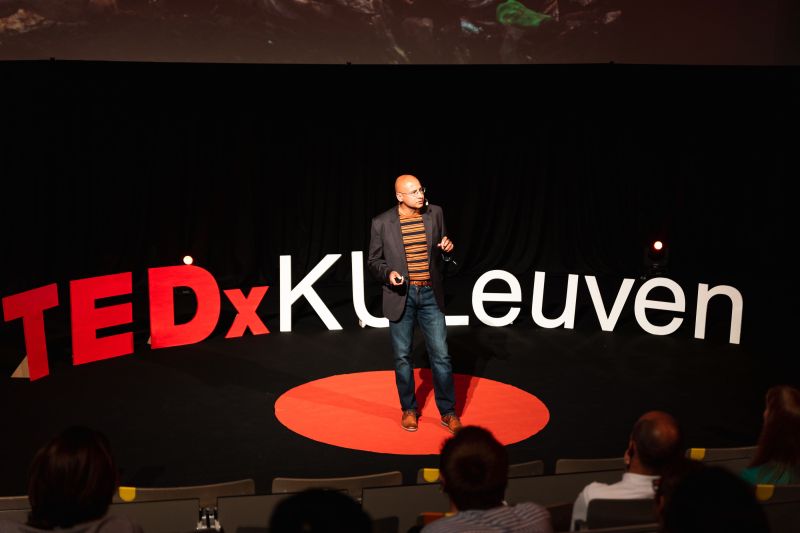In this last dialogue for HOM Videos, Nidesh Lawtoo meets Judith Butler in Paris to account for the role a different, psychic, performative and troubling conception of mimesis play in their influential work. Taking a genealogical approach to Butler’s latest book to date, Who Is Afraid of Gender, Lawtoo asks Butler to revisit the role mimetic and expressive theories of aesthetic play in their influential book, Gender Trouble (I).
Category Archives: Video Talk
HOM Videos 10: Ancient Foundations for Mimetic Studies
What a better place to conclude the Homo Mimeticus project than the ancient Agora of Athens were philosophy was born? It is in fact here that Socrates among many other philosophers conceived of philosophy not only as a love of wisdom but also as a way of life, as Pierre Hadot would say.
HOM Videos 10: Ancient Foundations for Mimetic Studies II
In this last episode of HOM Videos, Nidesh Lawtoo returns to the place where mimetic studies begun: the Great Theatre of Dionysus in Athens. It is in fact here that mimesis was not simply represented but, rather, performed by actors on mimes endowed with the capacity to generate a mimetic, dramatic, or Dionysian pathos in the audience as well.
Violence & the Oedipal Unconscious: Book Launch
In this book launch of a diptych on Violence and the Unconscious, Nidesh Lawtoo, Marina Garcia-Granero and William Johnsen present the latest output of the ERC project Homo Mimeticus. Rather than entering the debate on media violence from a quantitative perspective, the book retraces the genealogy of the concept of catharsis that still informs, or misinform the popular imagination. The launch contextualizes the book within mimetic studies and discusses key thinkers of violence and the unconscious, from Aristotle to Nietzsche, Freud to Girard, among others. More information here: https://msupress.org/9781628964851/vi…
Homo Mimeticus Book Launch and Conclusion
In this book launch of Homo Mimeticus: A New Theory of Imitation (Leuven UP, 2023, OPEN ACCESS), HOM/GM PI Nidesh Lawtoo joins forces with his team (Niki Hadikoesoemo, Marina Garcia-Granero & Giulia Rignano) to sum up the main results of the HOM project and open up the new transdisciplinary field of mimetic studies Homo Mimeticus proposes.
HOM Videos 8, The Psychology of Mimesis: Mikkel Borch-Jacobsen
In the eighth episode of HOM Videos, the philosopher and historian of psychoanalysis Mikkel Borch-Jacobsen (University of Washington) discusses with Nidesh Lawtoo the genealogical foundations of psychic mimesis: from his studies at the University of Strasbourg with Lacoue-Labarthe to the birth of psychoanalysis (out of Charcot’s and Bernheim’s theories of hysteria and suggestion), from Freud’s account of identification to Lacan’s theory of the mirror stage to Big Pharma, mimesis turns out to play the leading protean role in the modern and contemporary pathologies of homo mimeticus.
Homo Mimeticus: Nidesh Lawtoo @ TEDx

To conclude the Homo Mimeticus Project, PI Nidesh Lawtoo takes the mimetic turn on the TEDx stage, where mimesis has been at play for quite some time. Addressing the timely question, “how to (re)structure the (de)structured,” Nidesh takes us on an untimely philosophical journey–from children’s mimicry to Socrates’ dialogues, emotions to emojis, the Greek stage to the TED stage–to show that imitation is constitutive of an original species he calls, homo mimeticus.
Nietzsche on Mimetic Metamorphoses Part II
For Nietzsche philosophy was a diagnostic activity that entailed looking at sickness from the perspective of health (and vice versa) to propose cures. In Part 2 of this talk, shot in Sils Maria, Switzerland, Nidesh Lawtoo considers the role of mimesis that leads Nietzsche to turn personal sickness or pathology into a diagnostic critique of mimetic pathos, or patho-logy. Drawing on concepts articulated in The Phantom of the Ego (2013), Nietzsche turns out to be at the origins of the concepts of mimetic pathos, pathos of distance, and patho(-)logies internal to HOM Theory.
Mimetic Inclinations and the Limits of the Enlightened Subject (Willow Verkerk)
In this talk GM member Willow Verkerk proposes a mimetic return to the Kantian subject through the dissonant figure of the Marquis de Sade’s Juliette. It brings together Simone de Beauvoir’s reading of Sade and Adriana Cavarero’s criticism of Kant to show that Juliette’s sadism is a problem distinctive to the denial of mimetic inclination. It argues that Juliette position, as one legacy of the enlightened subject, requires us to take seriously the material implications of a human ideal who is uninterested in love.

Recording available here:
Nietzsche on Mimetic Metamorphoses
For Nietzsche philosophy was an embodied activity that should lead to a metamorphosis of the spirit. In Part 1 of this talk, shot in Sils Maria, Switzerland, Nidesh Lawtoo situates Nietzsche’s “Three Metamorphoses of the Spirit” that open Thus Spoke Zarathustra against the Alpine summits and paths that inspired Nietzsche’s meditations in the first place. In the process, mimesis turns out to be central for Nietzsche’s reevaluation of morality, subjectivity, as well as to concepts such as the “overman” and the “eternal return of the same.”
